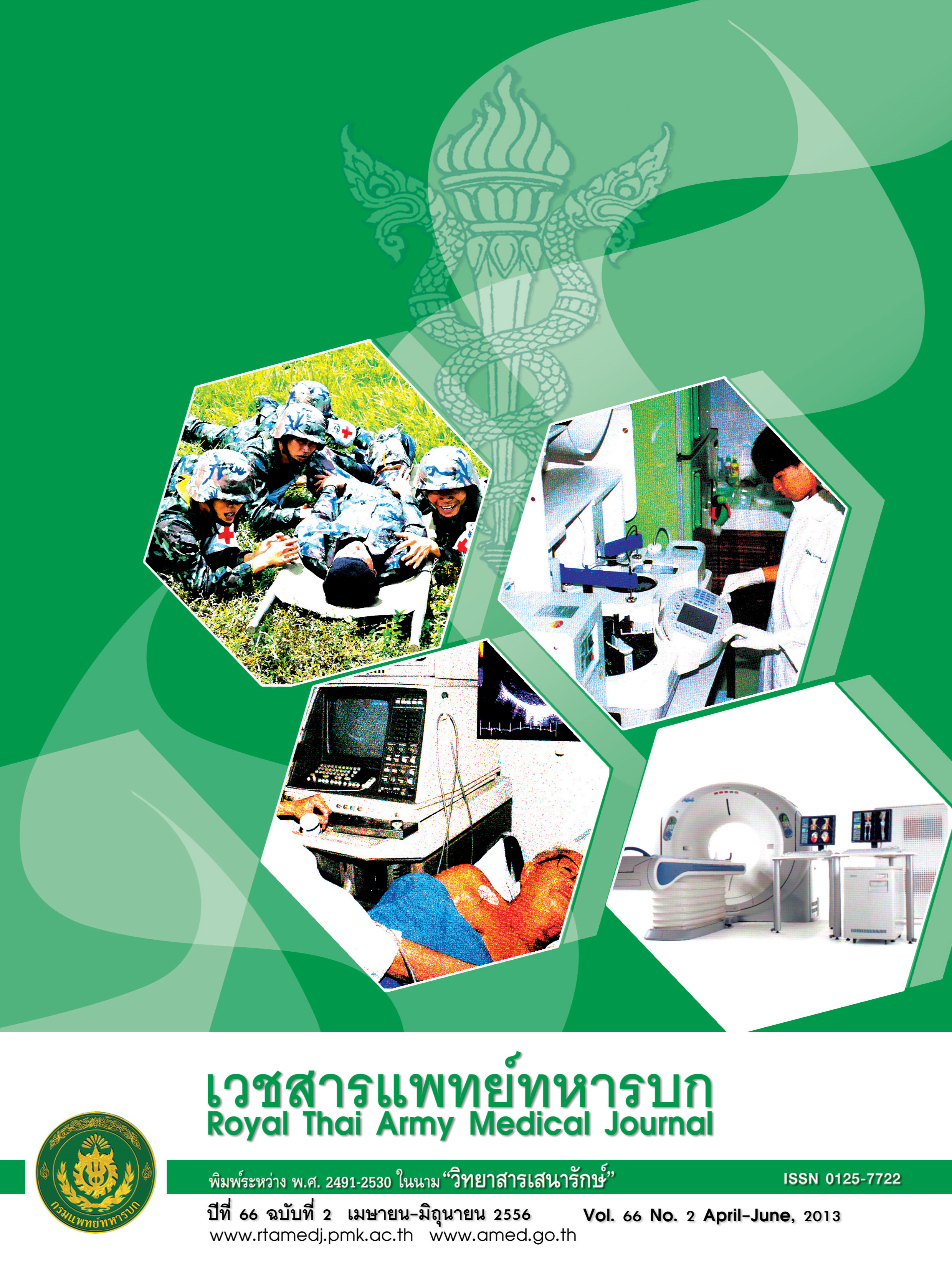การใช้ยาลีโวฟล็อคซาซินเพื่อลดความเสี่ยงของการเกิดไข้จากภาวะเม็ดเลือดขาวต่ำ ในผู้ป่วยมะเร็งเต้านมที่ได้รับการรักษาด้วยยาเคมีบำบัด
Main Article Content
บทคัดย่อ
The use of levofloxacin for reducing rate of chemotherapy-induced febrile neutropenia in breast cancer patients which remains controversial. Methods: We conducted a randomized double-blind placebo-controlled trial in patients who were receiving cyclic chemotherapy for breast cancer and at intermediate risk of febrile neutropenia. The 53 patients who on 216 chemotherapy cycle were randomly assigned to receive either 500 mg of levofloxacin placebo. Results: The 2.8 percent of patients in the levofloxacin group had febrile neutropenia less than 9.3 percent of patients in the placebo group significantly (p value = 0.045). The incidence of febrile neutropenia in the first cycle (16.1 percent) is more than in the later cycle (4.3 percent). Conclusions: The administration of levofloxacin reduces risk of chemotherapy-induced febrile neutropenia in breast cancer patients who have intermediate risk. Levofloxacin prophylaxis should be offered routinely to these group of patients and during in the first cycle of chemotherapy.
Downloads
Download data is not yet available.
Article Details
รูปแบบการอ้างอิง
1.
ชมาฤกษ์ ว. การใช้ยาลีโวฟล็อคซาซินเพื่อลดความเสี่ยงของการเกิดไข้จากภาวะเม็ดเลือดขาวต่ำ ในผู้ป่วยมะเร็งเต้านมที่ได้รับการรักษาด้วยยาเคมีบำบัด. RTA Med. J. [อินเทอร์เน็ต]. 18 กันยายน 2013 [อ้างถึง 6 กุมภาพันธ์ 2026];66(2):47-58. available at: https://he02.tci-thaijo.org/index.php/rtamedj/article/view/11748
ประเภทบทความ
นิพนธ์ต้นฉบับ (Original Article)
บทความในวารสารนี้อยู่ภายใต้ลิขสิทธิ์ของ กรมแพทย์ทหารบก และเผยแพร่ภายใต้สัญญาอนุญาต Creative Commons Attribution-NonCommercial-NoDerivatives 4.0 International (CC BY-NC-ND 4.0)
ท่านสามารถอ่านและใช้งานเพื่อวัตถุประสงค์ทางการศึกษา และทางวิชาการ เช่น การสอน การวิจัย หรือการอ้างอิง โดยต้องให้เครดิตอย่างเหมาะสมแก่ผู้เขียนและวารสาร
ห้ามใช้หรือแก้ไขบทความโดยไม่ได้รับอนุญาต
ข้อความที่ปรากฏในบทความเป็นความคิดเห็นของผู้เขียนเท่านั้น
ผู้เขียนเป็นผู้รับผิดชอบต่อเนื้อหาและความถูกต้องของบทความของตนอย่างเต็มที่
การนำบทความไปเผยแพร่ซ้ำในรูปแบบสาธารณะอื่นใด ต้องได้รับอนุญาตจากวารสาร


